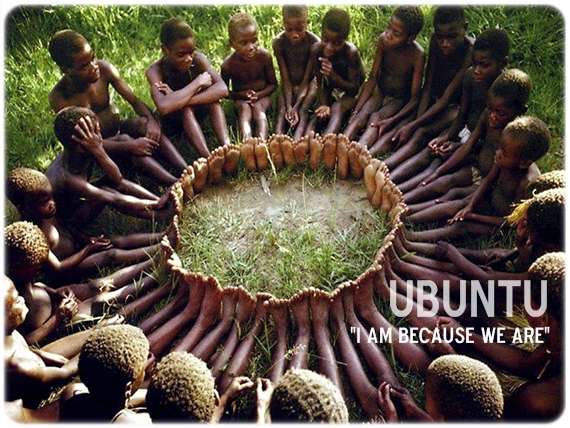What HR leaders get wrong when tackling racial bias.
According to a recent survey by the UK’s Black Women in Leadership (BWIL) Network, two thirds of Black women reported experiencing racial biases in the workplace, rising to 84% for senior black managers. It’s a problem that has caused many Black women to consider – or actively pursue – different career paths or leave their workplace altogether.
Racial biases influence decisions around recruitment, progression and employee wellbeing, amongst many other factors, and can create an environment where employees feel excluded and disrespected – like they don’t belong. Tackling these issues, therefore, is a crucial and urgent matter for HR leaders and companies worldwide.
Yet, whilst there is no doubt that many leaders start with the good intention of ensuring all their people are treated equitably, equally and fairly, taking steps to confront and eliminate racial biases can be difficult, and mistakes can be made. Here are some of the main problems that companies and HR leaders face when tackling racial biases, and ideas on how they can be overcome.
A lack of self-awareness, or even being in denial, about racial biases
Confronting racial bias in our workplaces relies on a willingness for self-assessment and openness to change. In doing so, we put ourselves as HR leaders in a position of vulnerability to answer the questions about our past decisions, future actions, and progress – or lack thereof – towards truly inclusive organisations.
Self-awareness is something that HR leaders, in my view, spend less time on than they should, and this makes it difficult to genuinely appreciate the unconscious bias that we all have as individuals. We are all products of our experiences, parental influences, cultures and much more. Understanding how these factors influence the way you relate to other people – particularly people who are different to you – is the first step that we should all take towards tackling racial bias.
Denying that we have biases, and even the existence of racism in the workplace and in society, is also a huge mistake that is made in some organisations. Racism still has an undeniable presence in the workplace and when leaders act like discrimination and racial bias is a myth and fail to call it out, you allow it to fester. As HR, you must take the lead and show that everyone, without exception, has a right to belong and to be respected in the workplace.
Not proactively diversifying your own team of reports
HR is a leadership profession and is responsible for the wellbeing and welfare of all the people in the organisation. It is the function that partners with other areas of the business to advise on issues around people and is accountable for their experiences at work. However, if the HR team is itself not racially diverse, it’s a far greater challenge to effectively understand, tackle and support colleagues experiencing racial bias.
You may have heard the saying that you should ‘get your own house in order’ before offering advice to someone else. So, if your team does not have a diverse range of experiences and talent, you must act to ensure lasting change for the benefit of all. It’s important that you look within your own teams and are trailblazers and role-models for the wider organisation in terms of diversity, representation, and inclusion.
To that end, ensure your team members are aware of their position as leaders and are working towards the same goals of diversity and inclusion. Work with your People and HR Team to address and remove the biases you may have in your recruitment strategies and engage with your colleagues to implement these changes.
This could include the adoption of blind recruitment and ensuring that you have a diverse shortlist of candidates at interview stages. You should also ensure you have an effective onboarding process – one that is tailored to an individual’s needs. Over time, there will be a step towards consistent progress for all.
A reluctance to ask questions, listen to the answers and do more
To effectively tackle racial bias in the workplace, there must be a willingness to listen and be accountable. As a leader, you must be willing to sacrifice your own comfort for the greater good of the team and challenge yourself and your colleagues to do better. Reflect on your hiring and career progression decisions and set stretching targets that will push the organisation towards change, even if there is a reluctance to do so.
Many leaders put their entire teams and organisations through unconscious bias training which can be applauded, especially if done from a place of care. The mistake however is believing that once training is done, the problem is solved. Eliminating bias will not come from training alone.
To really take a step towards eradication, adequate resources should be invested in a root and branch review of every people process. Leaders and team members should understand the consequences of not adopting the behaviours required to enable inclusion.
Refusing to recognise – and respect – our differences
Each of us has talents, characteristics and experiences that make us unique. Refusing to recognise and respect the value of our differences is a mistake. We are not all the same, even if we look and sound alike. In the UK, the expression BAME is being phased out as more people understand that its use may prevent the real issues and needs of diverse communities of talent being met.
A nuanced and strategic approach is required when tackling racial biases. Leadership is relational and whilst it is important to ensure that you have initiatives which give all your people a voice and way of speaking up and speaking out, it is also important to ensure that there are specific programmes in place to address the needs of different racial groups.
Not making the pursuit of love-based leadership a priority
If inclusion enables diversity, then love is fundamental to inclusion, and in a world and workplace where the pursuit of inclusion is critical, the eradication of racial bias must be a prerequisite. When a leader operates from a place of love, they are willing to listen not only to the negative experiences of racial bias and its effect on individuals within your organisation – but are also willing to ask and act on what can be done to create a positive, inclusive environment.
When all of your people, regardless of their race and background, feel like they are included in your organisation, you create the backdrop for the possibility of ground-breaking innovation and progress.
Love-based leadership is essential to putting in place values and behaviours that create a workplace culture where everyone, without exception, feels like they belong. It is a willingness to implement personal, leadership, and career development initiatives and underpin these with measurable goals. In doing so, tackling racial bias then becomes the responsibility of all managers, employees, and teams within your organisation.
As a HR leader, you are accountable to your people, and it is your responsibility to make the workplace a safe, healthy, and inclusive space for all. So, if you choose to pursue one thing in your quest to genuinely tackle racial bias, pursue the active presence of love—that unconditional acceptance of self and others – in your organisations and teams. It is the key that unlocks inclusion and diversity, and ultimately eradicates the presence of racial bias, and indeed any other bias, in the workplace.
Yetunde Hofmann is a board level executive leadership coach and mentor, global change, inclusion and diversity adviser, author of Beyond Engagement and founder of SOLARIS – a pioneering new leadership development programme for Black women based in Four Marks, UK.


























